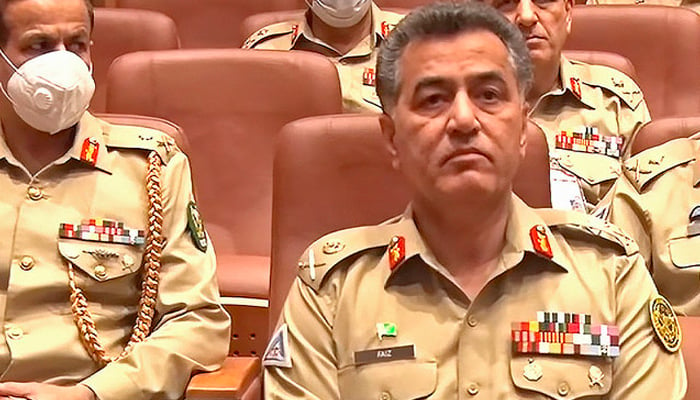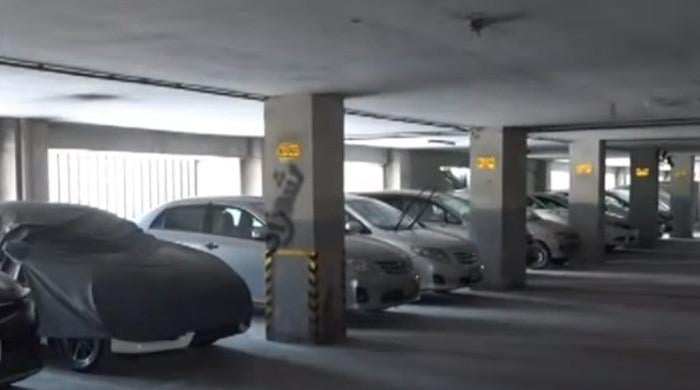Faizabad sit-in: Ex-DG ISI skips inquiry commission's hearing for second time
Gen (retd) Faiz Hamid has now been asked to record his statement in second week of January 2024
December 30, 2023

- Commission issues ex-spy chief notice through Defence Ministry.
- ISI chief has been asked to record statement in January 2024.
- Former spy chief summoned for third time in a row.
ISLAMABAD: Former director general (DG) Inter-Services Intelligence (ISI) Lieutenant General (retd) Faiz Hamid has yet again skipped the hearing of the Faizabad Dharna Inquiry Commission (FDIC), as he did not appear before the commission on Friday, The News reported on Saturday quoting sources.
This was the second time that the former ISI chief has remained absent from the hearing being conducted by the inquiry commission, which earlier summoned him in the second week of December this year and then on December 29, sources said.
The commission has, therefore, issued the former spy chief another summon notice through the Defence Ministry, ordering him to cooperate in the inquiry, the sources maintained.
The former ISI chief has now been asked to record his statement in the second week of January 2024 for the third time.
Gen (retd) Faiz is being summoned to record his statement on the sit-in staged by the Tehreek-e-Labbaik Pakistan (TLP) at the Faizabad flyover in Islamabad in November 2017.
Meanwhile, Joint Director General Intelligence Bureau (IB) Sajid Kiani had, on December 19, recorded his three-hour-long statement before the inquiry commission wherein he ruled out any aspect of interference from any other institution during the operation against the TLP, the sources had said.
Sajid Kiani was serving as senior superintendent of police (Operations) in Islamabad in 2017 at the time of the Faizabad sit-in.
The probe panel was constituted on the order of the Supreme Court of Pakistan under the chair of retired IGP Akhtar Ali Shah after the apex court rejected the fact-finding committee report constituted by the government.
On November 15, Chief Justice Qazi Faez Isa had remarked that the commission would be empowered to summon anyone, including former army chiefs, prime ministers and chief justices.
It is important to note that the commission has also probed former prime minister Shahid Khaqan Abbasi, ex-interior minister Ahsan Iqbal, then-secretary to PM Fawad Hasan Fawad and other senior officials serving in Islamabad and Punjab who were involved in the episode.
Faizabad verdict
On February 6, 2019, a two-member bench of the apex court comprising the now-CJP Isa and Justice Mushir Alam recommended that persons, issuing an edict or fatwa to harm another person or put another person in the harm’s way must be dealt with iron hand and prosecuted under relevant laws.
It also ruled that the intelligence agencies must not exceed their respective mandates. Later, the bench disposed of a suo moto case regarding the 2017 Faizabad sit-in staged by the TLP.
The 43-page verdict issued by the two-judge bench and published on the apex court's website read: “Every citizen and political party has the right to assemble and protest provided such assembly and protest is peaceful and complies with the law imposing reasonable restrictions in the interest of public order.
“The right to assemble and protest is circumscribed only to the extent that it infringes on the fundamental rights of others, including their right to free movement and to hold and enjoy property.”
In November 2017, the top court had taken suo motu notice of the three-week-long sit-in, which was held against a change in the finality-of-Prophethood oath, termed by the government as a clerical error, when the government passed the Elections Act 2017.
The sit-in was called off after the protesters reached an agreement with the government.











